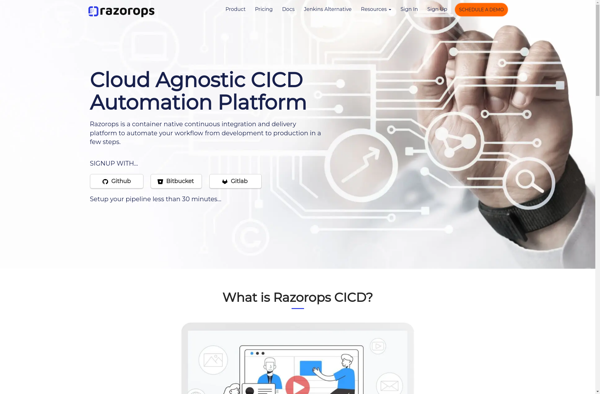Description: Wercker is a container-centric continuous integration and deployment (CI/CD) platform for Kubernetes, designed to automate build, test, and deployment pipelines. It integrates with Docker containers and Kubernetes clusters to streamline delivery of applications.
Type: Open Source Test Automation Framework
Founded: 2011
Primary Use: Mobile app testing automation
Supported Platforms: iOS, Android, Windows
Description: Razorops is a SaaS platform that provides cloud management, automation, and optimization for businesses. It allows easy deployment, monitoring, and management of cloud environments across AWS, Azure, and Google Cloud.
Type: Cloud-based Test Automation Platform
Founded: 2015
Primary Use: Web, mobile, and API testing
Supported Platforms: Web, iOS, Android, API

